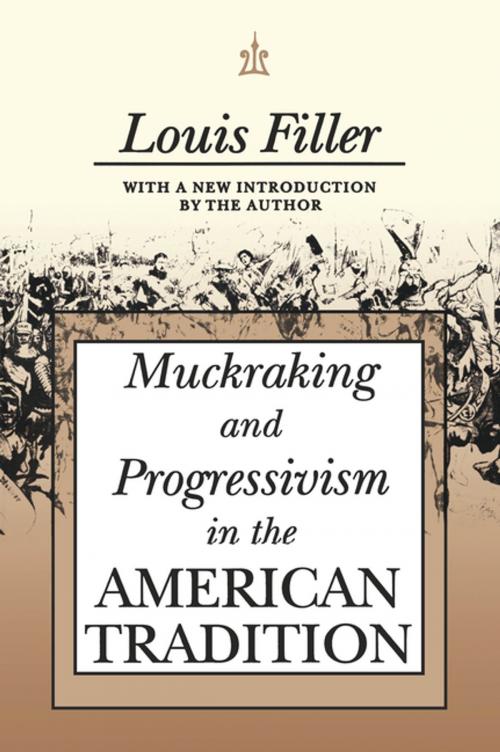| Author: | Louis Filler | ISBN: | 9781351308908 |
| Publisher: | Taylor and Francis | Publication: | April 17, 2018 |
| Imprint: | Routledge | Language: | English |
| Author: | Louis Filler |
| ISBN: | 9781351308908 |
| Publisher: | Taylor and Francis |
| Publication: | April 17, 2018 |
| Imprint: | Routledge |
| Language: | English |
Muckraking and progressivism have always marched arm-in-arm, cutting a wide path through modern American history. Originally published as Appointment at Armageddon, Filler's book is a vital contribution in understanding the intrinsic dynamic of reform in American life. It extracts from the issues that fostered progressivism and muckraking an essence that illuminates contemporary debate.
Filler points out that early twentieth-century progressivism was essentially middle class, seeking common denominators for social interests. It was also a modernizing force in such areas as child labor, poverty, farm problems, and race relations. In his new introduction, Filler reviews various instances of progressivism throughout history.
Filler maintains that progressivism died out when pride in its achievements turned to bitterness. Rather than celebrating the progress made by outstanding Americans, such as W.E.B. DuBois and Susan B. Anthony, various groups began focusing only on the oppressed and the oppressors. By concentrating on the negative instead of the positive, Americans abandoned the forward-looking tenets of turn of the century progressivism.
Muckraking and Progressivism in the American Tradition is a timely book. It is needed to inspire Americans to find a new way to solve current dilemmas. This significant work will be of interest to sociologists, historians, and political theorists.
Muckraking and progressivism have always marched arm-in-arm, cutting a wide path through modern American history. Originally published as Appointment at Armageddon, Filler's book is a vital contribution in understanding the intrinsic dynamic of reform in American life. It extracts from the issues that fostered progressivism and muckraking an essence that illuminates contemporary debate.
Filler points out that early twentieth-century progressivism was essentially middle class, seeking common denominators for social interests. It was also a modernizing force in such areas as child labor, poverty, farm problems, and race relations. In his new introduction, Filler reviews various instances of progressivism throughout history.
Filler maintains that progressivism died out when pride in its achievements turned to bitterness. Rather than celebrating the progress made by outstanding Americans, such as W.E.B. DuBois and Susan B. Anthony, various groups began focusing only on the oppressed and the oppressors. By concentrating on the negative instead of the positive, Americans abandoned the forward-looking tenets of turn of the century progressivism.
Muckraking and Progressivism in the American Tradition is a timely book. It is needed to inspire Americans to find a new way to solve current dilemmas. This significant work will be of interest to sociologists, historians, and political theorists.















